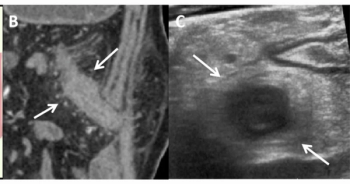
Intestinal ultrasound demonstrated an 88.2 percent agreement with computed tomography enterography in characterizing creeping fat in patients with Crohn’s disease, according to new research.
Senior Editor, Diagnostic Imaging

Intestinal ultrasound demonstrated an 88.2 percent agreement with computed tomography enterography in characterizing creeping fat in patients with Crohn’s disease, according to new research.
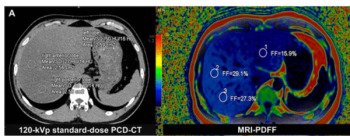
Irrespective of differences with radiation dosing and tube voltage, obtaining CT-derived fat fraction from photon-counting detector CT provides consistently comparative results to MRI-derived proton density fat fraction assessment, according to new research.
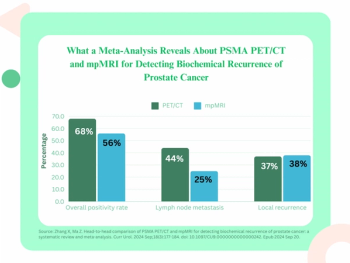
A new meta-analysis found that PSMA PET/CT offers a 12 percent higher positivity rate for detecting biochemical recurrence of PCa and a 19 percent higher positivity rate for identifying lymph node metastasis in comparison to mpMRI.
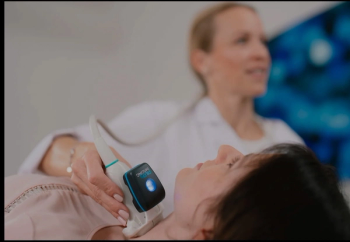
The Piur tUS Infinity system reportedly reduces operator dependency with ultrasound through upgrading of two-dimensional ultrasound devices and access to 3D multiplanar image reconstructions of thyroid conditions.
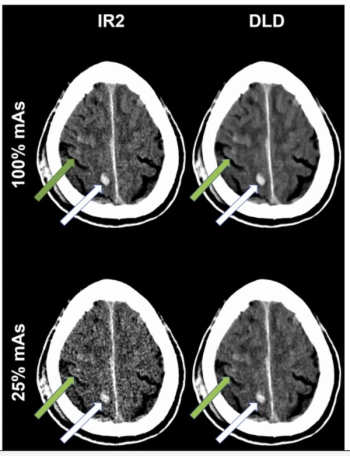
For patients who had neuroradiological trauma CT scans, researchers noted no significant visual differences between deep learning denoising at 25% mAs and iterative reconstruction at 100% mAs.
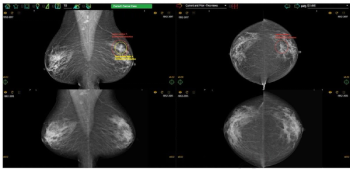
While researchers noted no significant impact on sensitivity rates, they found that access to a patient’s prior mammograms resulted in a nearly 15 percent increase in sensitivity for current mammography interpretation.
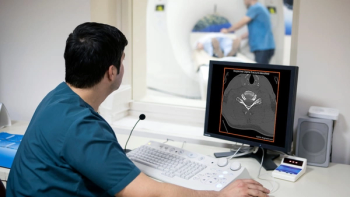
The CINA-CSpine AI software reportedly demonstrated a 90.3 percent sensitivity rate for cervical spine fractures in validation testing on more than 300 non-contrast CT scans.
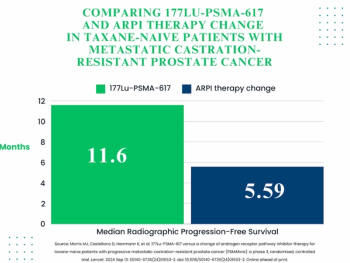
The use of 177Lu-PSMA-617 was associated with a significantly longer radiographic progression-free survival and a 12 percent lower rate of grade 3 or higher adverse events in comparison to a change of ARPI therapy in patients with metastatic castration-resistant prostate cancer (mCRPC).
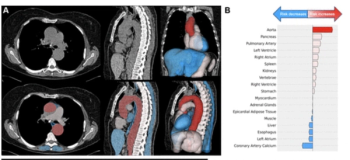
Emphasizing multi-structure segmentation and feature extraction from chest CT scans, an emerging AI model demonstrated an approximately 70 percent AUC for predicting significant incidental extrapulmonary findings as well as two-year and 10-year all-cause mortality.
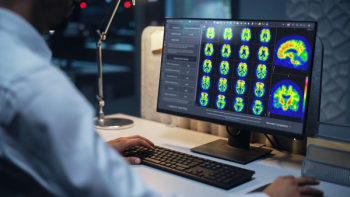
Now available with MIMneuro, the Centiloid scaling software provides automated quantitative assessment of amyloid plaque density, a key component of Alzheimer’s disease.
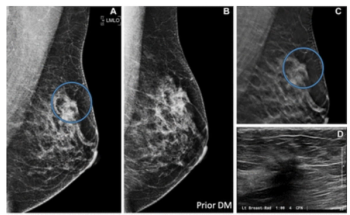
In a study involving over 272,000 breast cancer screening exams, digital breast tomosynthesis (DBT) had a higher breast cancer detection rate and a lower rate of advanced cancer presentation at the time of diagnosis in comparison to digital mammography.

Providing automated TI-RADS classifications and worksheets, the new AI-enabled software may facilitate improved efficiency with thyroid ultrasound exams.
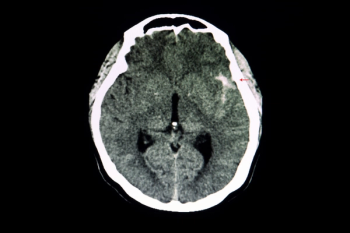
Radiomics models offered a pooled AUC of 86 percent for differentiating between ruptured and unruptured intracranial aneurysms, according to a recently published meta-analysis.
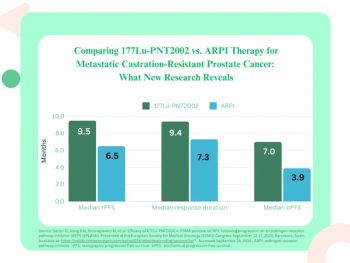
The PSMA-targeted modality 177Lu-PNT2002 improved radiographic progression-free survival by 29 percent in patients with mCRPC in comparison to ARPI therapy, according to new phase 3 trial data presented at the ESMO Congress in Spain.
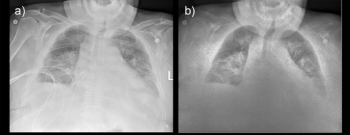
The use of a portable dual-energy X-ray detector in the ICU at one community hospital reportedly facilitated a 37.5 percent decrease in chest CT exams in comparison to the previous three months, according to research presented at the American Society of Emergency Radiology (ASER) meeting in Washington, D.C.
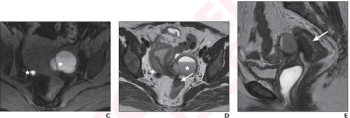
While noting the strength of MRI for complete staging of disease and ultrasound’s ability to provide local disease characterization, the authors of a new literature review suggest the two modalities offer comparable results for diagnosing pelvic endometriosis.
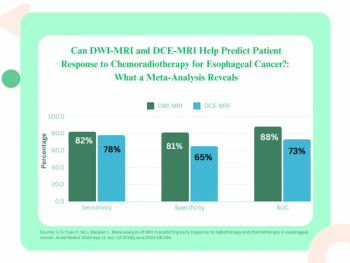
Diffusion-weighted MRI provided pooled sensitivity and specificity rates of 82 percent and 81 percent respectively for gauging patient response to concurrent chemoradiotherapy for esophageal cancer, according to new meta-analysis.
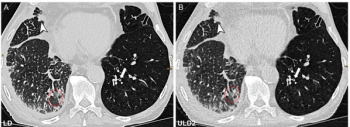
Two ultralow-dose photon counting CT protocols yielded satisfactory quality for diagnostic assessment in over 95 percent of patients who had post-transplant lung deformities, according to new research.
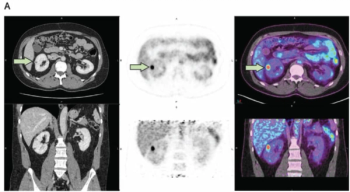
Results from a multicenter phase 3 trial showed that the PET/CT imaging agent (89Zr)Zr-girentuximab had an 85.5 percent mean sensitivity rate for the diagnosis of clear cell renal cell carcinoma.
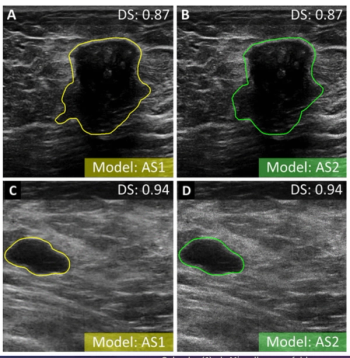
Developed with breast ultrasound data from nearly 1,200 women, a model with mixed radiomic and autoencoder features had a 90 percent AUC for diagnosing breast cancer, according to new research.
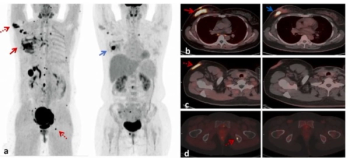
The imaging agent 18F-FAPI PET/CT demonstrated greater than a 45 percent higher sensitivity rate in comparison to 18F-FDG PET/CT for the detection of axillary and extraaxillary regional lymph node metastases, according to a lesion-based analysis from a recent study.
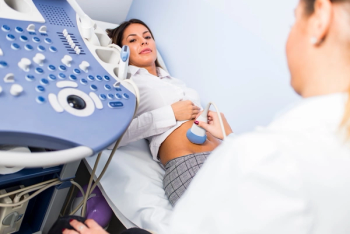
Facilitating natural contrast delivery through an intrauterine catheter, FemChec can be utilized for ultrasound assessment of fallopian tubes and may provide diagnostic confirmation for an emerging non-surgical option for permanent birth control.
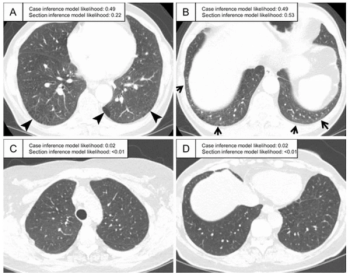
A machine-learning-based model demonstrated an 87 percent area under the curve and a 90 percent specificity rate for predicting interstitial lung abnormality on CT scans, according to new research.
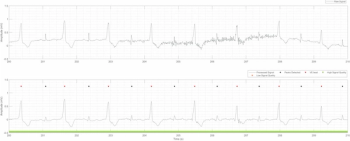
Geared toward ambulatory use, the HeartKey Rhythm suite reportedly offers enhanced signal clarity and rhythm detection algorithms.
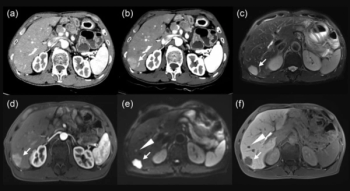
In a study involving 396 confirmed neuroendocrine tumor liver metastases, researchers found that Gd-EOB-DTPA-enhanced MRI offered 19 percent higher sensitivity than polyenergetic CT.
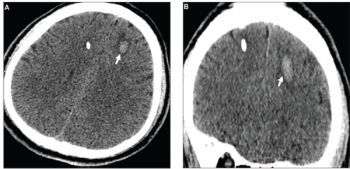
Adjunctive AI showed no difference in accuracy than unassisted radiologists for intracranial hemorrhage (ICH) detection and had a slightly longer mean report turnaround time for ICH-positive cases, according to newly published prospective research.
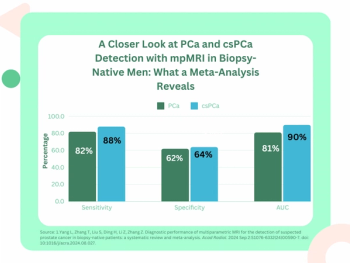
For clinically significant prostate cancer, multiparametric MRI (mpMRI) has a pooled sensitivity rate of 88 percent in biopsy-naïve men, according to a new 16-study meta-analysis.
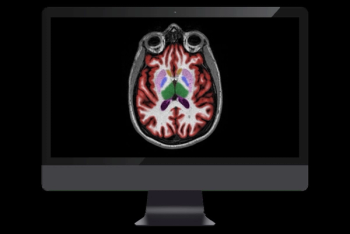
Offering enhanced deep learning technology, the updated NeuroQuant 5.0 software reportedly bolsters segmentation capabilities for amyloid-related imaging abnormalities (ARIA) in patients with Alzheimer’s disease.
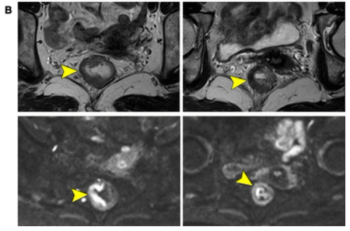
In a comparison of imaging assessments to gauge the effectiveness of neoadjuvant chemotherapy for rectal adenocarcinoma, researchers found the combination of diffusion-weighted imaging and MR tumor regression grading had a 90 percent area under the curve (AUC) and a negative predictive value (NPV) of 93 percent.
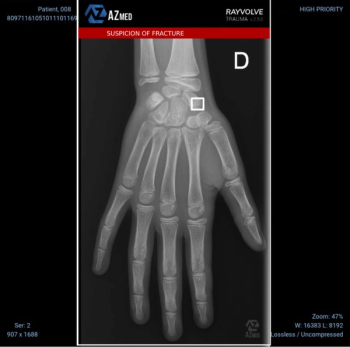
The AI-enabled software Rayvolve reportedly demonstrated a 96 percent sensitivity rate for diagnosing pediatric fractures in a recent study involving 3,000 patients.